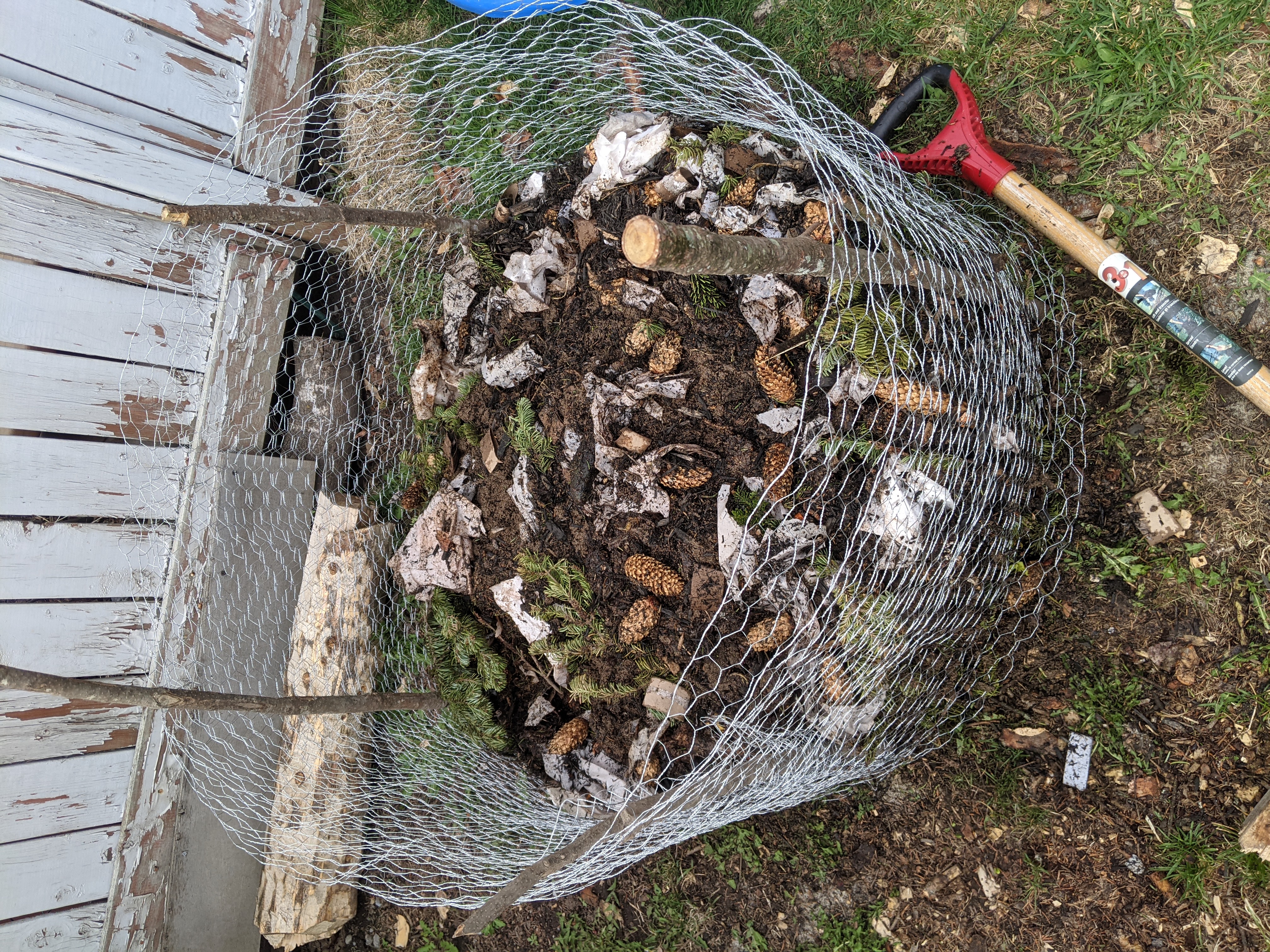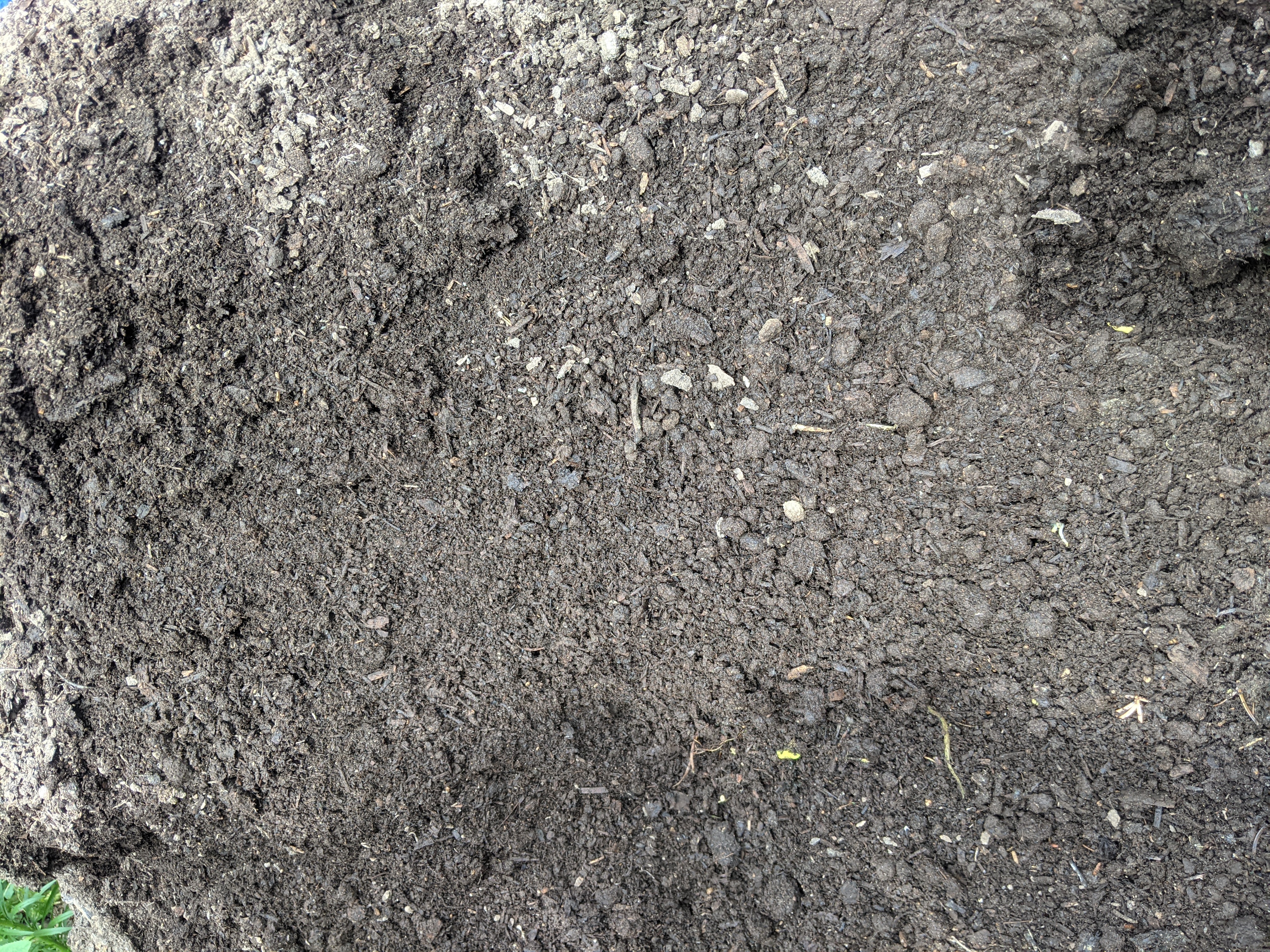- Home
- SOUL Members
- Member Profiles
- Julia-Dupuis
.JPG)
Julia Dupuis Accredited Organic Land Care Practitioner, SOUL Founder, Owner of Soils Alive Composting and Consulting Inc. Ottawa, ON |
1. When did you first become interested in nature?
I grew up in rural PEI and spent most of my childhood outside. When I was 8 or 9 my parents bought a small, 2 bedroom cottage (we’re a family of 6) and my siblings and I would entertain ourselves outside for hours. I remember noticing so many things, like the soft grass and prickly grass and how the cliff eroded where there was just grass, but not where there were trees. For me, being in nature always was, and still is, my normal.
2. What is your academic background and what drew you to study soil in particular?
I studied chemistry at UNB but it was an experience shortly before starting my final year that exposed me to a negative side of chemicals, and one of the many roles that soil plays in the environment. A few years after graduating I went on to complete my MSc in Environment and Management at Royal Roads University and did my thesis on toxins in soil. This is when I really started to get interested in soil, the human impacts on it, and how different plants grow well, or poorly, in different types of soil.
3. How important is soil in the big picture and why is it necessary for humans to better understand and appreciate the role soil plays in ecological health?
Soil is so incredibly important. It is responsible for 100% percent of the food we eat and plays critical roles in the environment. Soil filters water and provides structure for plants, it stores carbon and holds water. Soil degradation has been gradual, and sometimes not apparent, but when we compare degraded soil to an untouched space we can see the drastic differences in plant health, air quality and water quality, all results of healthy soil.
4. What are some of the challenges and opportunities you've encountered starting your consultancy business?
One challenge is convincing people that they need a biological assessment. Soil or compost may look good, and grow some plants really well, but understanding the complete health can lead to increased yields and healthier plants.
However, this is an opportune time for this venture. There are more conversations now than ever about soil degradation, feeding a growing world population and capturing carbon in soil. All of these are achievable when we better understand the health of the soil.
5. Can you describe a project you've worked on that has inspired you or increased your knowledge or perspectives?
I’m working on a microscopy project right now comparing different types of compost and soil. I’ve purchased a few products and tested my garden soil and some backyard compost. There’s a significant gap in what industry says growers need and what they actually need to improve yields and water retention, not to mention soil structure and carbon capture. Seeing this motivates me to educate growers so we can easily heal the soil.
6. In the past few years, have you noticed a shift in people's interest in incorporating land care practices that have a lower environmental impact than conventional practices? If so, what do you think is driving this interest?
Absolutely. I think the movement is shifting and the conversation is snowballing. There have been some drastic environmental wake up calls over the last few years - food security, declining bee populations, and the impacts of glyphosate to name a few and people are responding. Small initiatives like “No Mow May” are encouraging people to talk about pollinators while mowing less and foregoing lawn treatments.
7. Finally, what effect does spending time with your hands in the dirt so to speak have on you personally?
Sometimes I look at it as a microbial boost. I love the feel of cool soil on my hands and seeing it clump together around old roots. I find it relaxing and rejuvenating and rewarding that with some seeds and a bit of TLC it will provide me with delicious food.
 Photos: Top left: Making compost. Top right: finished product. Below: Cucumbers growing in healthy soil
|
|


